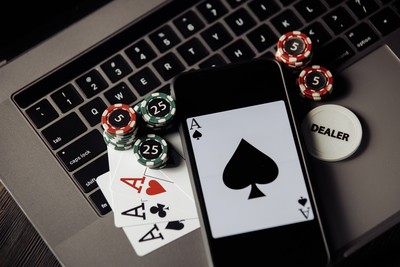
According to a Google report written in collaboration with KPMG, the number of people who play casino and video games in India has risen from 20 million in 2010 to a whopping 250 million in 2018. The money figures are also mind-blowing, to say the least, given the huge size of the market here. By the year 2021, the Indian gaming industry is projected to generate around $340 million in revenues. The design and export of games is another important international market that will be worth approximately $1.7 billion in just a few years.
India is also a critical contributor to the gambling market at a global level and while still a small nation that is making its way in the virtual gambling universe, the estimates in terms of online gambling revenues here easily reach US$30 billion on a yearly basis. What makes this alternate online world so alluring to millions of gamers in India? Shortly put, the incredible gaming culture here with an amazing openness to online casinos for real money, e-sports, video games and other fun virtual activities. A large number of players, their young age profile and the general social attitude in relation to all things concerning gaming are additional factors worth mentioning here. Gaming has gained so much popularity in India that even Bollywood has started to create games with specific themes.
Best Real Money Casinos In India
Gambling Culture: Old Traditions and Modern-Day Restrictions
Gambling was first mentioned in the Hindu Mythologies that originate to 2000BC. According to the historical data recorded in the Mythologies, the Indian people had a constant desire to use gambling as a means of dealing with conflicts, as well as a way of befriending other people more easily. According to ancient scrolls, during 2000BC and 1500BC, Kings used to roll dice and use their precious items as stakes. The dice were made from Vibhitaka nuts since they had a five-side feature. The people of Ancient India also used to believe that gambling was a good way of keeping their minds busy while enjoying more heart-to-heart conversations. Later on, as centuries went by, the people of India started embracing gambling even more and the activity was eventually labelled as a leisure sport. It was passed from one generation to the next and people particularly enjoyed games that featured animal performances in the form of horse races. The sport continued to survive the test of time and everyone was interested in learning it.
 During the 15th century, gambling started gaining more structure and it quickly turned into one of the most popular ways of entertainment. Gambling houses became legal and the King received part of the profits generated here. The majority of today's Indian casino games were invented during the 15th century, so it is an important turning point in the country's history. During the 18th century, Europeans came to India and introduced the people here to Cricket. This quickly helped sports betting to become one of the preferred activities embraced by people in the country. People used to bet thousands of rupees on a cricket team they believed would win. This continued until the end of the century when the British people took over and gambling houses started becoming illegal. Horse racing, rummy games and lotteries were considered illegal as well. However, this didn't stop the Indian people's undying love for sports and gambling in general from evolving. In fact, games started to gain more ground and they were now played in small towns as well as residential streets for large stakes.
During the 15th century, gambling started gaining more structure and it quickly turned into one of the most popular ways of entertainment. Gambling houses became legal and the King received part of the profits generated here. The majority of today's Indian casino games were invented during the 15th century, so it is an important turning point in the country's history. During the 18th century, Europeans came to India and introduced the people here to Cricket. This quickly helped sports betting to become one of the preferred activities embraced by people in the country. People used to bet thousands of rupees on a cricket team they believed would win. This continued until the end of the century when the British people took over and gambling houses started becoming illegal. Horse racing, rummy games and lotteries were considered illegal as well. However, this didn't stop the Indian people's undying love for sports and gambling in general from evolving. In fact, games started to gain more ground and they were now played in small towns as well as residential streets for large stakes.
Once Indians stepped into the 20th century, gambling restrictions started to kick in. The government started frowning upon gambling because of the potentially addictive character of the activity, as lots of people used to bet beyond their limitations. This convinced government officials to take people's right to gamble. However, this didn't stop them from continuing to enjoy different forms of gambling, especially given the advent of the Internet and computers. Lots of people went online and started getting their gambling needs met there. What is even more surprising is the fact that over 40% of Internet users in the country admitted to having spent their time gambling for the sole purpose of having fun and relaxing and not with the intention of making a fortune.
Casino gambling in India continues to be heavily restricted in the present day, with a few exceptions in the form of lotteries and horse racing. While more and more illegal betting and gambling activities are recorded here, online gambling continues to be in its infancy stages in the country. Sikkim had planned to issue a few online casino licences a decade ago, but its initiative failed, in spite of the huge wave of popularity that gambling enjoyed in the country. Sikkim hosts an online lottery that accepts bets from players in all parts of the country, and more states were expected to follow suit and further promote and open the online gambling market within the country's borders.
While casinos in India are not legally allowed to advertise or build websites that market online forms of gambling games like casinos, bingo or sports betting, players here are not forbidden to use non-Indian casinos. These offshore casinos are excellent at throwing the focus on Indian players, providing them with excellent themes preferred by Indians, including Bollywood themes like the Bollywood Story themed game by NetEnt giant, Indian Myth and other similar titles. Check out the top Indian-friendly sportsbooks and casino reviews that we periodically updated for you. The gambling platforms often offer rewarding welcome bonuses in INR and no deposit free spins and also allow players to use the Indian Rupee as an accepted fiat currency for simplified banking solutions. In fact, this appears to be the unique legal requirement that offshore casinos are asked to comply with.
People who continue to speak against online gaming usually argue that many players are tempted to engage in illegal activities, which will automatically lead to higher risks of crime and laundering. At the same time, those who lobby for online gaming activities claim they are excellent means of expressing one's support toward the state via the huge revenues. A few years ago, brick-and-mortar casinos in areas like Goa or Sikkim generated mind-blowing revenues worth more than 135 crores rupees.
Today, casino fans eager to taste the real land casino experience can still visit these casinos, along with casinos in Daman. These are the only territories in India that host offline casinos, for a total of around 20 casinos, floating casinos on the Mandovi River included.
The Rise Of Mobile Devices & Gambling In India
The country has developed its own gaming niche thanks to the technological boom initiated a few years ago and which continues to grow at the moment. The large number of mobile devices that have been introduced to the population a few years ago and the 3G and 4G technologies that keep evolving and rising are essential elements that have contributed to the rise of online mobile gaming and gambling here. India's high 4G availability with examples like Jio continuing to take the world by surprise with an almost 98% 4G coverage as one fine example here. The rest of the planet may be eager to buy the latest gaming consoles and computers to enjoy smoother gameplay, but Indians seem to continue to latch on their mobile phones and devices to get access to their favourite online casino games.
Without a doubt, both players and developers of games would agree on the fact that mobile gambling is incredibly impactful. Nonetheless, it is not only easy to access the games via handheld mobile devices that are generating the huge popularity of these games. India also enjoys cheap data plans that have lowered their prices over the years, given the high competition in the country. This has automatically led to positive effects on the overall gaming and gambling industry. Given the limited options in terms of brick-and-mortar casino gambling, Indians choose to immerse into the endless gambling universe they can access 24/7.
Gambling Is A State Subject In The Country
Indian states are allowed to decide upon their own gambling laws and regulations concerning the activities within their state borders. The main document that prohibits gambling houses in India is the Public Gambling Act of 1867. The penalty for law-breakers is a fine worth ₹200 or being sent to prison for three months. The same act also forbids people from going to these gambling houses, with penalties of ₹100 or prison time for up to 30 days.
According to the Information Technology Act in 2000 that regulates virtual gambling in the country, terms like “gambling” and “betting” are nowhere to be found. This means the act was left for interpretation by the Court. The Court refused to examine the matter and, accordingly, online gambling is currently considered a banned offence in the Maharashtra state according to the "Bombay Wager Act". Casinos are allowed in three Indian states: Sikkim, Goa and Daman, with two land casinos in Sikkim and ten in Goa. The Public Gambling Act in 1976 clearly stated that casinos could only be built inside 5-star hotels or on offshore vessels if the government allows it.
At the moment, the penalty for a citizen in India being caught gambling online using a domestic casino that is not legally allowed to operate in the country is a fine worth ₹ 90,000 a day, starting with 2009. Players in India are still allowed to access offshore casinos that are Indian-friendly without fear of punishment. If you are eager to access a few of the best online casinos for real money for India 2020, take a look at our dedicated site pages and make your pick.
















